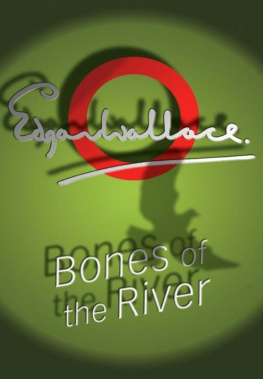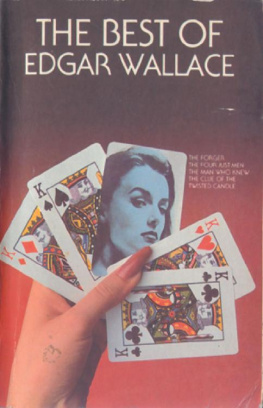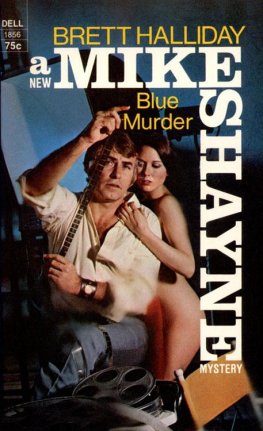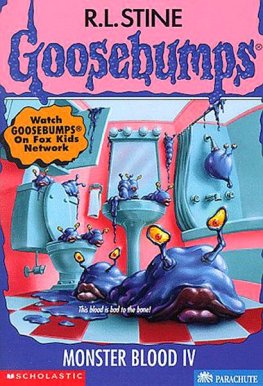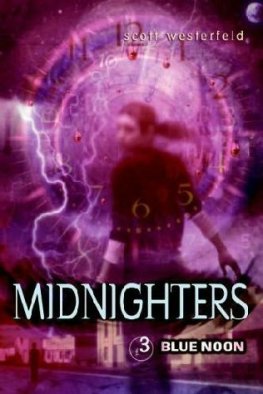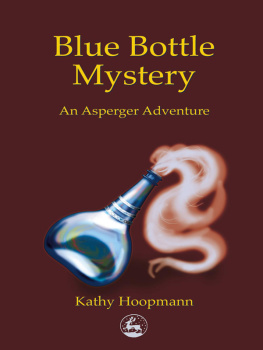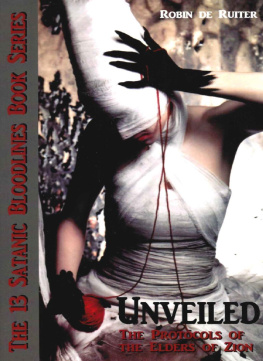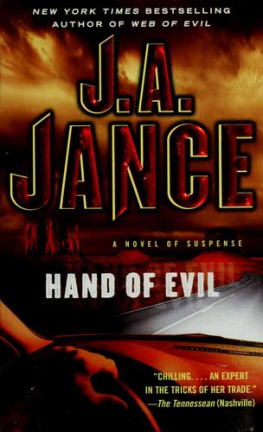Edgar Wallace - Blue Hand
Here you can read online Edgar Wallace - Blue Hand full text of the book (entire story) in english for free. Download pdf and epub, get meaning, cover and reviews about this ebook. year: 0101, genre: History. Description of the work, (preface) as well as reviews are available. Best literature library LitArk.com created for fans of good reading and offers a wide selection of genres:
Romance novel
Science fiction
Adventure
Detective
Science
History
Home and family
Prose
Art
Politics
Computer
Non-fiction
Religion
Business
Children
Humor
Choose a favorite category and find really read worthwhile books. Enjoy immersion in the world of imagination, feel the emotions of the characters or learn something new for yourself, make an fascinating discovery.

- Book:Blue Hand
- Author:
- Genre:
- Year:0101
- Rating:3 / 5
- Favourites:Add to favourites
- Your mark:
- 60
- 1
- 2
- 3
- 4
- 5
Blue Hand: summary, description and annotation
We offer to read an annotation, description, summary or preface (depends on what the author of the book "Blue Hand" wrote himself). If you haven't found the necessary information about the book — write in the comments, we will try to find it.
Blue Hand — read online for free the complete book (whole text) full work
Below is the text of the book, divided by pages. System saving the place of the last page read, allows you to conveniently read the book "Blue Hand" online for free, without having to search again every time where you left off. Put a bookmark, and you can go to the page where you finished reading at any time.
Font size:
Interval:
Bookmark:
Title: Blue Hand (1925) Author: Edgar Wallace
CHAPTER ONE
Mr. Septimus Salter pressed the bell on his table for the third time and uttered a soft growl.
He was a stout, elderly man, and with his big red face and white side-whiskers, looked more like a prosperous farmer than a successful lawyer. The cut of his clothes was queerly out of date, the high white collar and the black satin cravat that bulged above a flowered waistcoat were of the fashion of 1850, in which year Mr. Salter was a little ahead of his time so far as fashions were concerned. But the years had caught him up and passed him, and although there was not a more up-to-date solicitor in London, he remained faithful to the style in which he had made a reputation as a buck.
He pressed the bell again, this time impatiently.
Confound the fellow! he muttered, and rising to his feet, he stalked into the little room where his secretary was usually to be found.
He had expected to find the apartment empty, but it was not. A chair had been drawn sideways up to the big ink-stained table, and kneeling on this, his elbows on the table, his face between his hands, was a young man who was absorbed in the perusal of a document, one of the many which littered the table.
Steele! said Mr. Salter sharply, and the reader looked up with a start and sprang to his feet.
He was taller than the average and broad of shoulder, though he gave an impression of litheness. His tanned face spoke eloquently of days spent out of doors, the straight nose, the firm mouth, and the strong chin were all part of the characteristic soldier face moulded by four years of war into a semblance of hardness.
Now he was a little confused, more like the guilty school-boy than the V.C. who had tackled eight enemy aeroplanes, and had come back to his aerodrome with a dozen bullets in his body.
Really, Steele, said Mr. Salter reproachfully, you are too bad. I have rung the bell three times for you.
Im awfully sorry, sir, said Jim Steele, and that disarming smile of his went straight to the old mans heart.
What are you doing here? growled Mr. Salter, looking at the papers on the desk, and then with a tut of impatience, Arent you tired of going over the Danton case?
No, sir, Im not, said Steele quietly. I have a feeling that Lady Mary Danton can be found, and I think if she is found there will be a very satisfactory explanation for her disappearance, and one which will rather disconcert He stopped, fearful of committing an indiscretion.
Mr. Salter looked at him keenly and helped himself to a pinch of snuff.
You dont like Mr. Groat? he asked, and Jim laughed.
Well, sir, its not for me to like him or dislike him, he replied. Personally, Ive no use for that kind of person. The only excuse a man of thirty can produce for not having been in the war, is that he was dead at the time.
He had a weak heart, suggested Mr. Salter, but without any great conviction.
I think he had, said Jim with a little twist of his lips. We used to call it a poor heart in the army. It made men go sick on the eve of a battle, and drove them into dug-outs when they should have been advancing across the open with their comrades.
Mr. Salter looked down at the papers.
Put them away, Steele, he said quietly. Youre not going to get any satisfaction out of the search for a woman whowhy, she must have disappeared when you were a child of five.
I wish, sir began Steele, and hesitated. Of course, its really no business of mine, he smiled, and Ive no right to ask you, but Id like to hear more details of that disappearance if you can spare me the timeand if you feel inclined. Ive never had the courage to question you before. What is the real story of her disappearance?
Mr. Salter frowned, and then the frown was gradually replaced by a smile.
I think, Steele, youre the worst secretary I ever had, he said in despair. And if I werent your godfather and morally bound to help you, I should write you a polite little note saying your services were not required after the end of this week.
Jim Steele laughed.
I have expected that ever since Ive been here, he said.
There was a twinkle in the old lawyers eyes. He was secretly fond of Jim Steele; fonder than the boy could have imagined. But it was not only friendship and a sense of duty that held Jim down in his job. The young man was useful, and, despite his seeming inability to hear bells when he was wrapped up in his favourite study, most reliable.
Shut that door, he said gruffly, and when the other had obeyed, Im telling this story to you, and he pointed a warning finger at Jim Steele, not because I want to satisfy your curiosity, but because I hope that Im going to kill all interest in the Danton mystery as you call it for evermore! Lady Mary Danton was the only daughter of the Earl of Plimstocka title which is now extinct. She married, when she was quite a young girl, Jonathan Danton, a millionaire shipowner, and the marriage was not a success. Jonathan was a hard, sour man, and a sick man, too. You talk about Digby Groat having a bad heart, well, Jonathan had a real bad one. I think his ill-health was partly responsible for his harsh treatment of his wife. At any rate, the baby that was born to them, a girl, did not seem to bring them togetherin fact, they grew farther apart. Danton had to go to America on business. Before he left, he came to this office and, sitting at that very table, he signed a will, one of the most extraordinary wills that I have ever had engrossed. He left the whole of his fortune to his daughter Dorothy, who was then three or four months old. In the event of her death, he provided that the money should go to his sister, Mrs. Groat, but not until twenty years after the date of the childs death. In the meantime Mrs. Groat was entitled to enjoy the income from the estate.
Why did he do that? asked Jim, puzzled.
I think that is easily understood, said Mr. Salter. He was providing against the childs death in its infancy, and he foresaw that the will might be contested by Lady Mary. As it was drawn upI havent explained all the detailsit could not be so contested for twenty years. However, it was not contested, he said quietly. Whilst Danton was in America, Lady Mary disappeared, and with her the baby. Nobody knew where she went to, but the baby and a strange nurse, who for some reason or other had care of the child, were traced to Margate. Possibly Lady Mary was there too, though we have no evidence of this. We do know that the nurse, who was the daughter of a fisherman and could handle a boat, took the child out on the sea one summer day and was overtaken by a fog. All the evidence shows that the little boat was run down by a liner, and its battered wreck was picked up at sea, and a week later the body of the nurse was recovered. We never knew what became of Lady Mary. Danton returned a day or two after the tragedy, and the news was broken to him by Mrs. Groat, his sister. It killed him.
And Lady Mary was never seen again?
Salter shook his head.
So you see, my boy, he rose, and dropped his hand on the others shoulder, even if by a miracle you could find Lady Mary, you could not in any way affect the position of Mrs. Groat, or her son. There is only one tiny actress in this drama who could ever have benefited by Jonathan Dantons will, and she, he lowered his voice until it was little more than a whisper, she is beyond recallbeyond recall!
There was a moment of silence.
I realize that, sir, said Jim Steele quietly, only
Only what?
I have a queer feeling that there is something wrong about the whole business, and I believe that if I gave my time to the task I could unveil this mystery.
Mr. Salter looked at his secretary sharply, but Jim Steele met his eyes without faltering.
You ought to be a detective, he said ironically.
Next pageFont size:
Interval:
Bookmark:
Similar books «Blue Hand»
Look at similar books to Blue Hand. We have selected literature similar in name and meaning in the hope of providing readers with more options to find new, interesting, not yet read works.
Discussion, reviews of the book Blue Hand and just readers' own opinions. Leave your comments, write what you think about the work, its meaning or the main characters. Specify what exactly you liked and what you didn't like, and why you think so.

